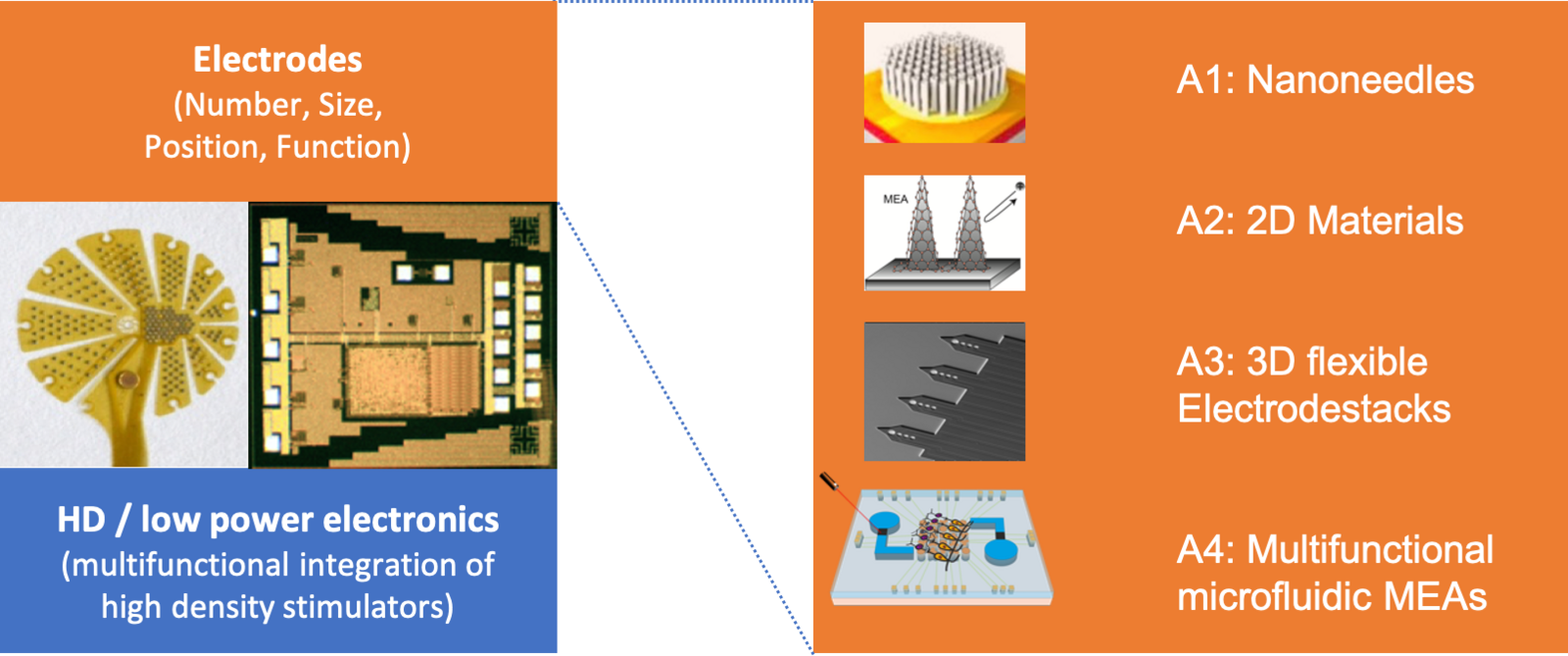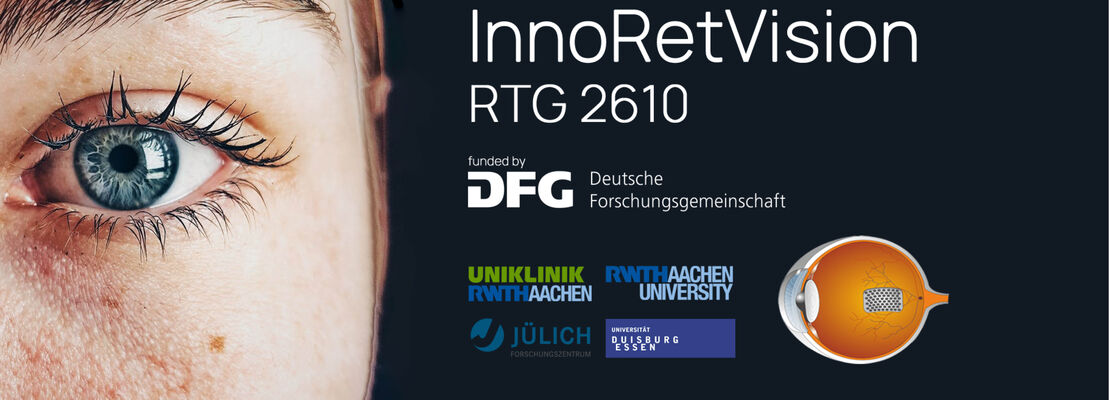Working Area A: Next Generation of Stimulation and Recording Electrodes for Retinal Implants

Planned PhD projects within Working Area A:
A1: Nano-needles on CMOS for Intra-Cellular Retinal Contacts (Seidl, Knoch)
An optimal visual impression is achieved by a robust interface to a high number of retinal cells. Our proposal aims at the design and fabrication of a three-dimensional nano-electrode array which will allow a direct contact of many retinal cells with preferably intracellular contact or in close vicinity to the respective cell.

A2: 2D-Materials for Electrode-Retina Interfaces and for improved Biocompatibility and Coating of flexible Implants (Knoch, Seidl)
A major issue of retina implants is the long-term stability and bio-compatibility of the electrodes interfacing the retina cells. The aim of the current project is to use graphene as bio-compatible surface coating and exploit the high conductivity and the ability of graphene to serve as diffusion barrier. In the project, appropriate three-dimensional electrodes, locally covered with graphene will be fabricated and thoroughly characterized regarding their interface contact properties to retinal cell, bio-compatibility and durability.

A3: Three-dimensional flexible retinal implants for in vivo retinal applications (Offenhäusser, Ingebrandt)
This project proposes a new generation of retinal implants: bidirectional microelectrode arrays, also called BiMEAs. Here, we aim to develop a three-dimensional (3D) intraretinal implant consisting of a stack of flexible and ultrathin penetrating microelectrode arrays (MEAs). In this way, we can enable access of the 3D intraretinal space of the retina to perform simultaneous electrical stimulation and recording of the retina. To this end, this project comprises the design, fabrication, validation, and the implementation of an insertion strategy to conduct in vivo applications with the novel implant.

A4: Flexible micro fluidic system with integrated electrodes for local stimulation, recording and electroporation (Ingebrandt, Johnen)
In this project, we develop an in vitro test platform for the investigation of retina degeneration and for tests regarding the electroporation-based transfection of retinal cells/tissue. In close collaboration with project C2 a chip and an amplifier setup will be developed. The chip will contain microelectrode arrays for electroporation, stimulation and recording from cell cultures and neuronal tissue. In addition, microfluidic structures and electronic ion pumps for localized delivery of plasmids and neurotransmitters will be integrated.


